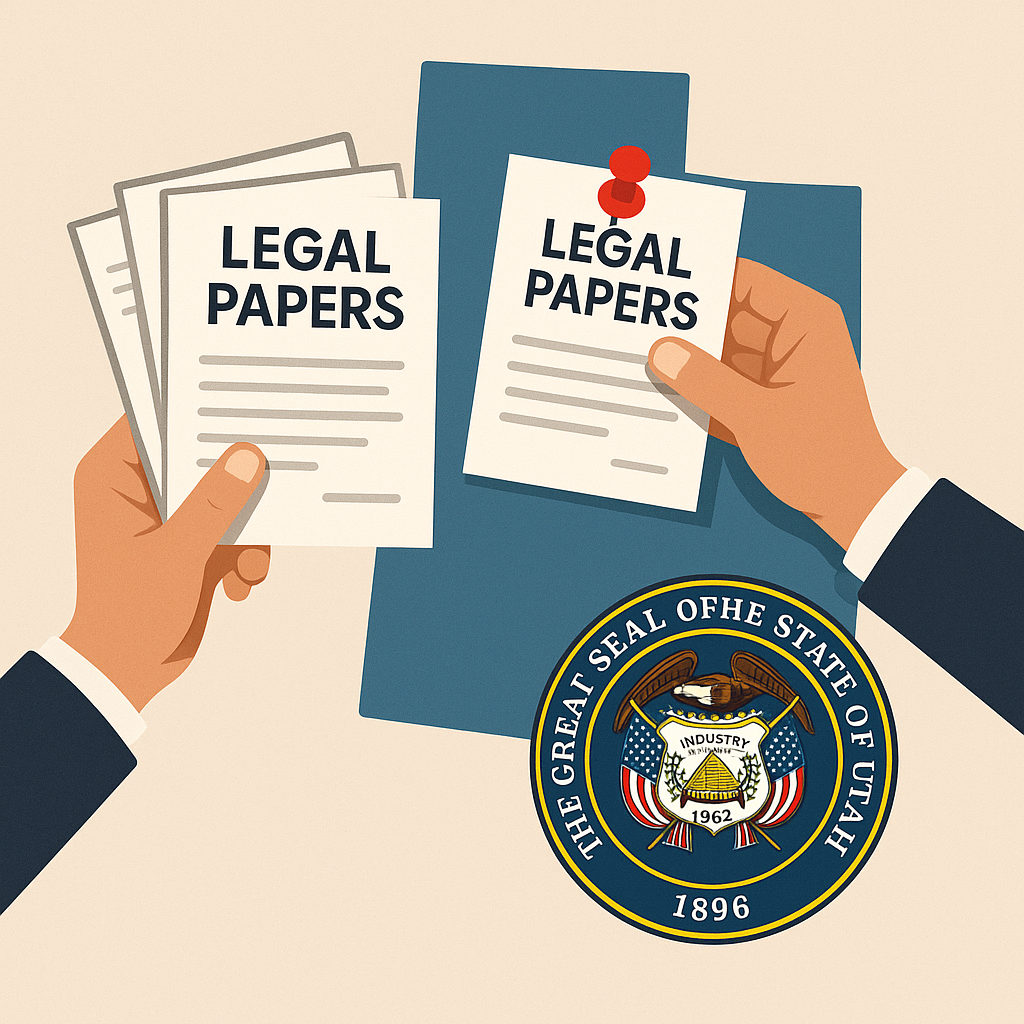How Do I Serve Legal Papers Properly In Utah?
Who can serve, approved methods, deadlines, Proof of Service, and how to fix bad service under Utah Rule 4
Short answer: if service is not done correctly, your case can stall or be dismissed. This Utah focused guide explains who can serve, how to serve, and what proof the court needs so you can keep your case on track.
Serving papers is more than handing over an envelope. Utah Rule 4 sets strict rules for delivery, timing, and proof. Whether you are suing, responding, or filing motions, doing it right from the start saves time, money, and credibility.
Below you will find each approved method, key deadlines, a Proof of Service walkthrough, how to cure mistakes, and practical tips.
Who Can Serve Legal Papers in Utah
Methods Matrix: Acceptable Ways to Serve
| Method | Description | Common Uses | Key Rules |
|---|---|---|---|
| Personal Service | Papers are physically handed to the person named in the lawsuit. | Most civil, family, and small claims cases. | Give directly to the person. The server identifies themself. Do not leave with a roommate or minor. |
| Substitute Service | Papers left with someone of suitable age and discretion at the home, then a copy mailed. | When personal delivery fails after reasonable effort. | Valid only after good faith attempts at personal service. |
| Mail Certified or Priority |
Documents mailed to the recipient address with tracking or signature confirmation. | Some family, eviction, or civil cases when permitted by court. | Allowed only if a judge permits or under Rule 4(d). Keep proof of mailing. |
| Acceptance of Service | The person signs a formal Acceptance of Service acknowledging receipt. | Cooperative cases like divorce or contracts. | Must include signature and date. Attach to Proof of Service. |
| Service by Publication | Notice published in an approved newspaper when the person’s location is unknown. | Rare. Use only with court permission. | Requires court approval and proof that you tried to locate the person first. |
Match the method to your case and follow the exact steps. When in doubt, ask the clerk or consult counsel before serving.
Deadlines for Service
Proof of Service — What the Court Requires
The server must file a Proof of Service under Utah Courts Form URCP 4(d). Include all details and sign under penalty of perjury.
Fill the top section
Case number and party names must match your filings.
Check the method used
Select personal, mail, or other. Provide details clearly.
Sign and file
Sign under penalty of perjury and file with the same court clerk where your case is active.
Once the court accepts your proof, service is officially recognized. Keep copies for your records.
Fixing Bad Service
Mistakes happen such as wrong address, late filing, or missing signature. Utah law allows you to cure bad service if you act fast.
Bad service can delay your case or nullify a judgment. Cure errors before your hearing date.
Practical Tips
Video and Resource Hub
Key Takeaways
Service must follow Utah Rule 4 or your case can be delayed or dismissed.
File a complete Proof of Service with attachments like tracking or signed acceptance if used.
Fix mistakes quickly by re serving and filing an amended proof.
This is legal information, not legal advice. When unsure, review Utah Rule 4 or consult an attorney.
Need Help Applying This To Your Situation
Serving correctly keeps your case on track. If you are unsure which method fits your case, check Utah Rule 4 or talk with a Utah attorney.
Utah Law Explained is here to help you navigate every step with clarity, from service to filing and beyond. While checklists and templates are not provided yet, these guides help you make sense of each requirement before heading to court.
